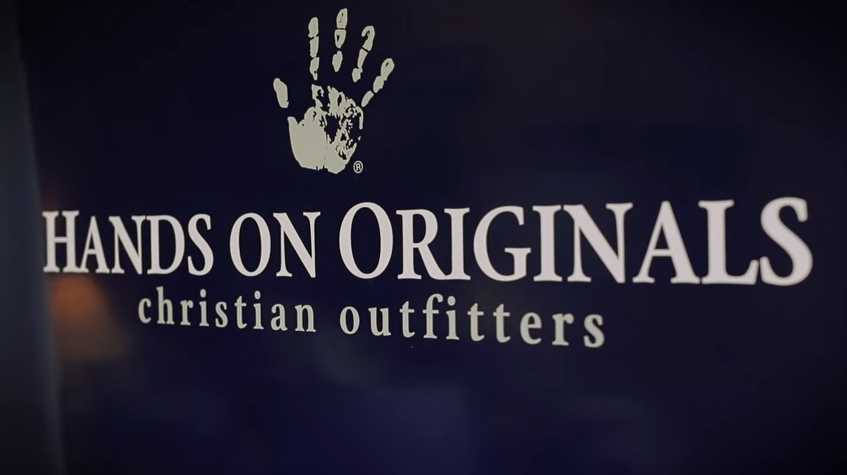 FRANKFORT, Ky. — The Supreme Court of Kentucky has agreed to hear an appeal from the Lexington-Fayette Urban County Human Rights Commission after a state appeals court ruled earlier this year that an expressly Christian screen printing business did not violate the law in declining to print t-shirts for a homosexual pride festival.
FRANKFORT, Ky. — The Supreme Court of Kentucky has agreed to hear an appeal from the Lexington-Fayette Urban County Human Rights Commission after a state appeals court ruled earlier this year that an expressly Christian screen printing business did not violate the law in declining to print t-shirts for a homosexual pride festival.
According to the Courier Journal, Chief Justice John Minton, Jr. granted the appeal. A hearing date has not yet been set.
As previously reported, in 2012, the Gay and Lesbian Services Organization of Lexington (GLSO) approached the Kentucky-based Hand On Originals—a company that identifies as “Christian outfitters” and providers of “Christian apparel” on the homepage of its website—to print t-shirts for the Lexington Gay Pride Festival.
When manager Blaine Adamson declined the order due to the company’s biblical convictions, GLSO filed a complaint with the Lexington-Fayette Urban County Government Human Rights Commission (HRC).
“I want the truth to come out—it’s not that we have a sign on the front door that says, ‘No Gays Allowed,’” Adamson said following the filing of the complaint. “We’ll work with anybody. But if there’s a specific message that conflicts with my convictions, then I can’t promote that.”
HRC examiner Greg Munson ruled in October 2014 that Hands On Originals violated the law by not printing the shirts for the event. The company was then ordered to undergo diversity training so that it would not decline to print such messages in the future.
“The evidence of record shows that the respondent discriminated against GLSO because of its members’ actual or imputed sexual orientation by refusing to print and sell to them the official shirts for the 2012 Lexington Pride Festival,” he wrote.
GSLO representative Aaron Baker admitted to the commission during the hearing that his desire to force Christians to print pro-homosexual messages works both ways, and that homosexual companies could be forced to print—for example—messages for the Westboro Baptist “Church.”
“I believe that a gay printer would have to print a t-shirt for the Westboro Baptist Church,” he stated, referring to the controversial organization whose messages express a desire for Americans to burn in Hell rather than repent and be saved. “And if the Westboro Baptist Church were to say, ‘Look, we’re a church; we’re promoting our church values by having our name on a T-shirt,’ I don’t see how you could refuse that.”
Hands on Originals filed an appeal with the Fayette Circuit Court via its legal counsel, contending that the ruling violated its constitutional right to freedom of religion and freedom of expression.
In April 2015, the court reversed Munson’s ruling, noting that the company regularly does business with homosexuals, and so the decision not to print the shirts was not based on any person’s sexuality, but rather the message that the company would be forced to convey.
The court noted that from 2010-2012 Hands on Originals declined 13 orders from various groups because of the message that was to be printed.
“Those print orders that were refused by HOO included shirts promoting a strip club, pens promoting a sexually explicit video and shirts containing a violence-related message,” it explained. “There is further evidence in the Commission record that it is standard practice within the promotional printing industry to decline to print materials containing messages that the owners do not want to support.”
The Human Rights Commission appealed the ruling to the Kentucky Court of Appeals, which upheld the circuit court determination in favor of Hands on Originals and Adamson.
It noted that GLSO representative Don Lowe never identified himself as a homosexual in placing the order, and the requesting organization isn’t limited to homosexuals. Therefore, the refusal had nothing to do with discriminating against a specific person, but rather the message that was requested.
“Don Lowe testified he never told Adamson anything regarding his sexual orientation or gender identity. The GLSO itself also has no sexual orientation or gender identity: it is a gender-neutral organization that functions as a support network and advocate for individuals who identify as gay, lesbian, bisexual, or transgendered,” the court wrote.
It said that businesses have the right to decline the creation of certain messages, otherwise essentially any citizen could file a discrimination complaint over the refusal of any order.
“A man who requests t-shirts stating, ‘I support equal treatment for women,’ could complain of gender discrimination if HOO refused to print the t-shirts because it disagreed with that message. And so forth. Clearly, this is not the intent of the ordinance,” the panel explained.
Adamson has said that he cannot print messages that are contrary to the word of God.
“I want God to find joy in what we do and how we work, how we treat our employees, and the messages we print,” he outlined in March 2016. “So if someone walks in and says, ‘Hey, I want you to help promote something,’ I can’t promote something that I know goes against what pleases Him.”
Become a Christian News Network Supporter...


